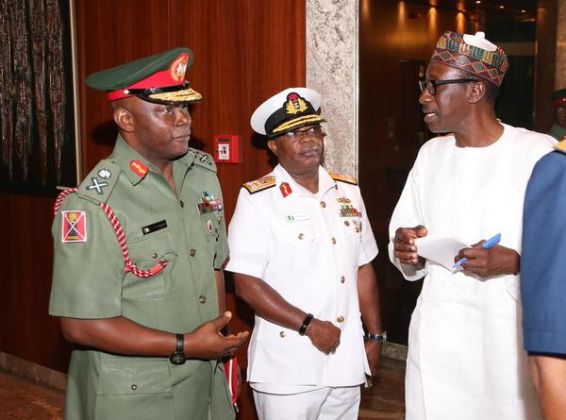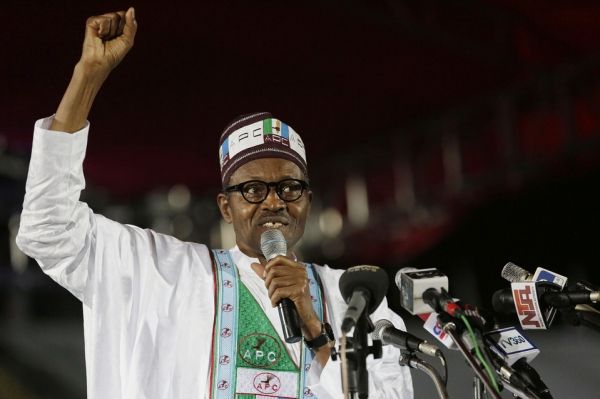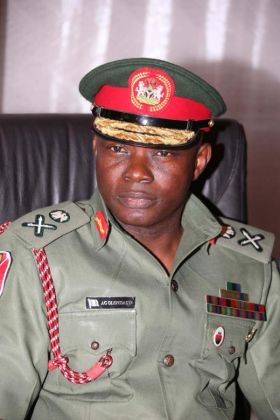Nigeria's president Buhari cleans up military
New military heads announced
After the sacking of the chiefs of the army, navy and airforce Nigeria's president Muhammadu Buhari has nominated the new chief of the defence staff as Major General Abayomi Olonisakin. Coming from Ekiti state in the south he was previously head of army training, so this comes as a big step up. The new head of the army, Tukur Yusuf Buratai and the new national security adviser, Major General Babagana Monguno both come from Borno state in the northeast, which is the centre for most of the Boko Haram terrorist violence.
The reorganisation coincided with more Boko Haram attacks around Maiduguri in Borno, now the defence command centre, and the first attack in neighbouring Cameroon.
It is thought that Buhari's action is not only an answer to the continuing Boko Haram insurgency but also to the Amnesty International accusations of human right violations in the military and the deaths of 8,000 prisoners. Amnesty International accused the sacked chief of the defence staff, Major General Alex Badeh, and the chief of the army, Major General Kenneth Minimah, of complicity in war crimes and has called for them to be referred to the International Criminal court.
Buhari, himself a military man who ruled Nigeria under a military regime in the 1980s, promised in his inauguration speech in May this year that he would put an end to human rights violations in the military as well as step up the campaign against Boko Haram. So far over 550 people have been killed in the north since his inauguration.
Nor has there been any progress in the search for the 219 school girls abducted by Boko Haram in 2014 under the previous president Goodluck Jonathan.
Reports of women suicide bombers in Boko Haram attacks in the north and east of Nigeria have been surfacing – one of the most recent of a 13-year old girl who was killed when explosives strapped to her were detonated in an attempt on a mosque in Kano. In the attack on the Cameroon town of Fokotol witnesses say that the two suicide bombers were wearing burquas.
The Nigerian military is about 500,000 strong, between troops and paramilitary forces. The army in particular has played a feared rule since independence from British colonial rule, seizing power in the 1960s during the civil war, and again in the 1980s. More recently Nigerian forces have played an important part in several peace-keeping missions particularly during the Liberia and Sierra Leone civil wars.
Goodluck Jonathan made a similar clean sweep of his military heads in January 2014 because of in-fighting between the service chiefs at the time. The only person to survive that clean-up was Major General Badeh, then promoted to chief of the defence staff, but now under Amnesty International accusations of human rights violations.


















